New Jersey Personal Injury Laws
Exploring the intricate landscape of New Jersey's personal injury laws requires a nuanced understanding of its legal principles, from Joint Liability to Comparative Negligence, and the specific stipulations surrounding recoverable damages. This state's framework not only dictates the procedural course for filing a claim but also markedly influences the potential outcomes for plaintiffs seeking redress for injuries sustained. With the clock ticking on a stringent two-year statute of limitations, the urgency for those affected to act is paramount. Yet, the complexity of these laws raises pivotal questions about the best strategies for individuals to pursue justice within New Jersey's legal system, inviting a deeper exploration into the nuances that can make or break a case.
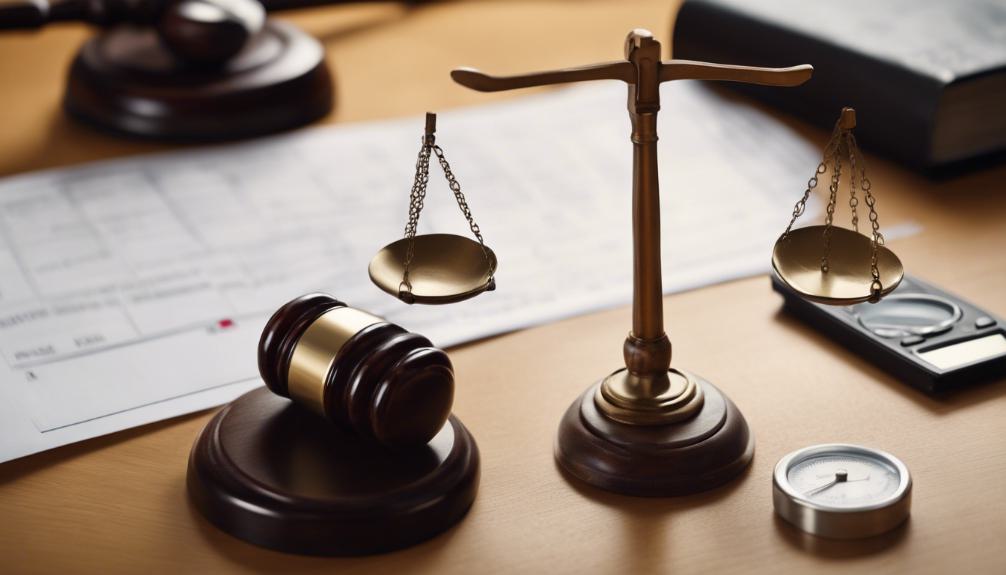
Key Takeaways
- New Jersey's personal injury laws encompass Joint Liability and Product Liability, holding parties accountable for damages.
- The state adheres to a Modified Comparative Negligence rule, affecting compensation based on fault percentage.
- Victims can recover damages for lost wages, medical expenses, and pain and suffering among others.
- There's a two-year statute of limitations for filing personal injury lawsuits, with exceptions for certain conditions.
Overview of Personal Injury Claims
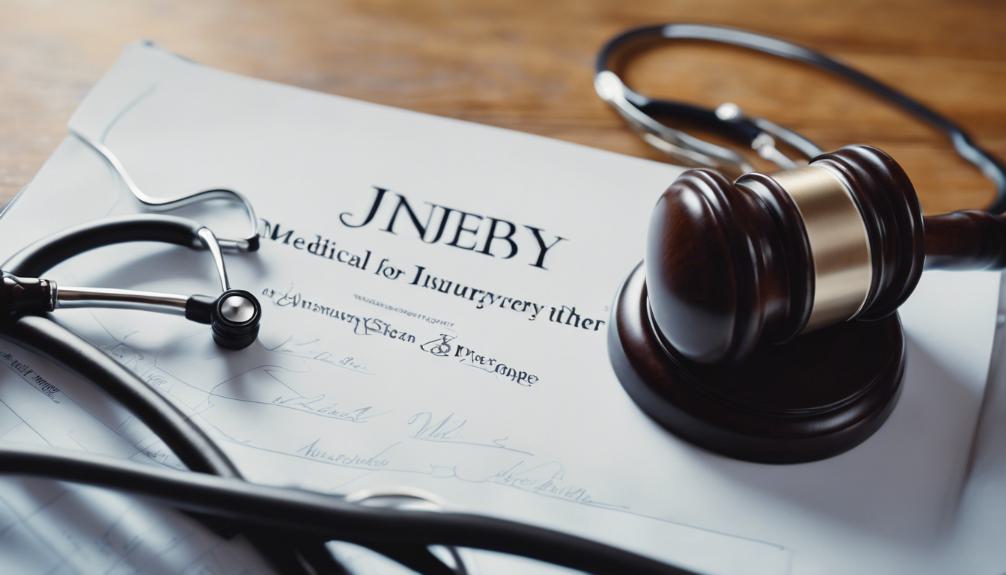
Annually, the United States sees over 400,000 personal injury claims filed, highlighting the significance of such legal actions in the country. This substantial number underscores the commonality of incidents leading to personal injuries, ranging from minor to severe. Despite the high volume of claims, a mere 4% advance to trial, suggesting a strong inclination towards settlements outside the courtroom. The vast majority of these cases involve car accidents, which serve as a proof to the risks associated with vehicular travel. This trend reflects not only the potential hazards present in daily commutes and travel but also the importance of legal recourse for victims seeking compensation for their injuries. Understanding these statistics is essential for grasping the scope and nature of personal injury claims in the United States.
Understanding New Jersey's Laws
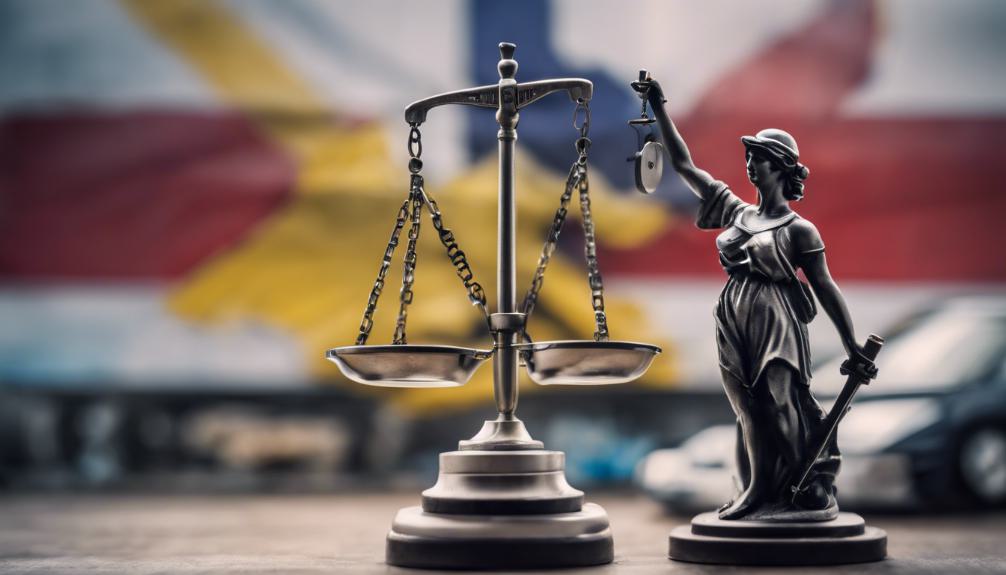
Having established the important prevalence of personal injury claims in the United States, it is vital to focus on the specific legal landscape within New Jersey. The state's personal injury laws are multifaceted, urging victims to prioritize medical attention before seeking legal counsel. Understanding the intricacies of these laws is essential for anyone involved in a personal injury case. New Jersey operates under a few key legal principles that greatly impact the outcome of personal injury claims. These include the Joint Liability Law, under which defendants can be jointly liable for damages, and the Product Liability Law, which holds manufacturers accountable for injuries caused by their products. Additionally, the state adheres to a modified comparative negligence rule, which can influence the claimant's ability to recover damages based on their degree of fault.
Recoverable Damages
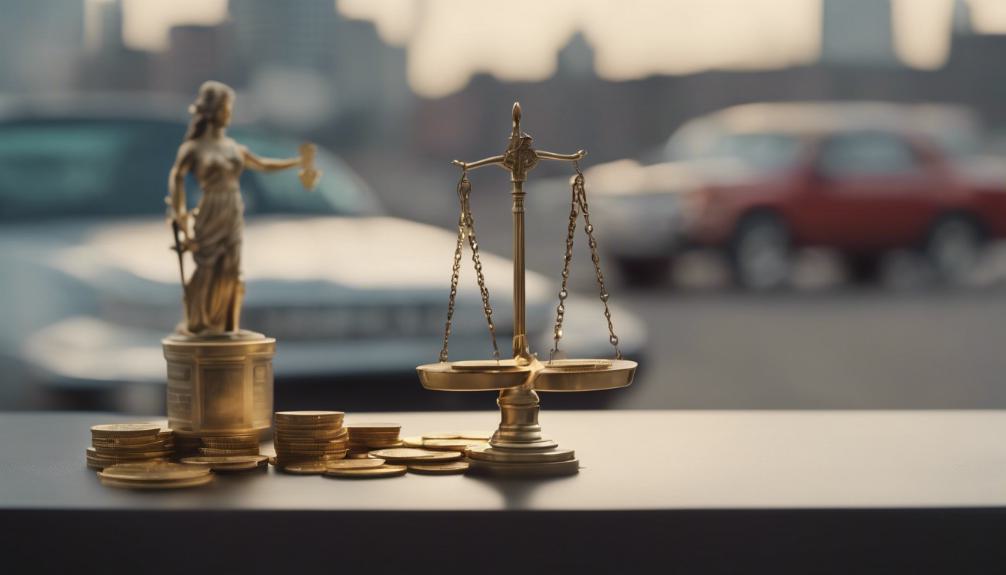
In New Jersey, individuals who have suffered personal injuries may be eligible to recover a range of damages, including lost wages, future earnings, and compensation for pain and suffering. Beyond these, victims can also claim for property damage which often accompanies incidents like auto accidents. Medical expenses form a significant part of recoverable damages, covering both past and future healthcare needs arising from the injury. Additionally, if the injury has led to a requirement for household help or modifications to the victim's living space, these costs may also be compensable. This all-encompassing approach to damages aims to restore the injured party to their pre-injury condition as much as possible, acknowledging the multifaceted impact injuries can have on an individual's life.
Key Legal Principles
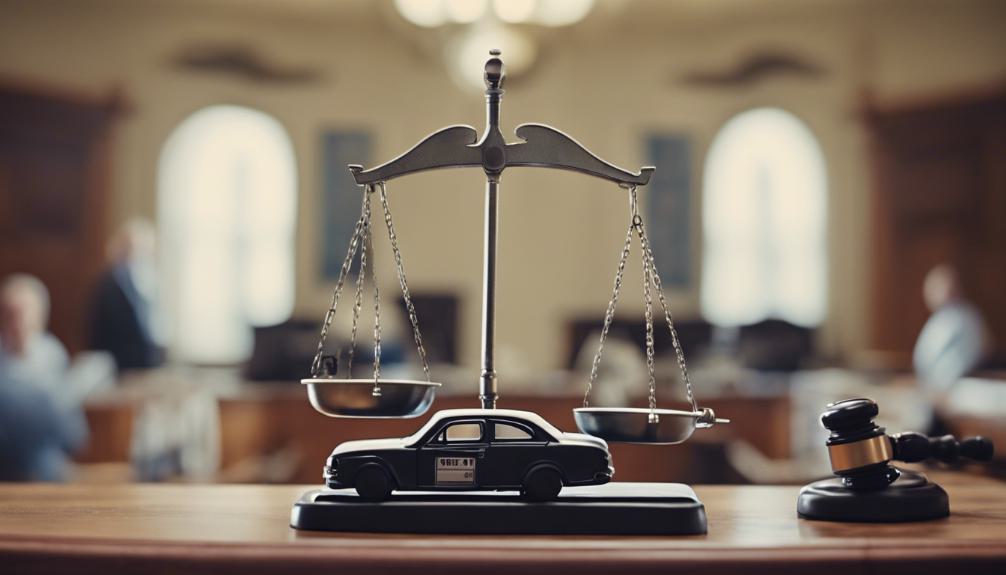
Understanding the key legal principles governing personal injury cases in New Jersey is essential for anyone seeking justice or compensation for their injuries. New Jersey's legal landscape includes several significant laws that impact how personal injury claims are handled. The Joint Liability Law stipulates that defendants can be jointly responsible for the damage, which means that each party can be held accountable for a portion of the total damages awarded. Additionally, the state's Product Liability Law allows for manufacturers to be held liable if their products cause injury, emphasizing consumer safety and accountability. Most conspicuously, New Jersey operates under a Modified Comparative Negligence rule. This principle means that if the injured party is found partially at fault for their own injuries, their compensation can be reduced proportionally to their degree of fault, but only if their fault is less than 50%.
Statute of Limitations
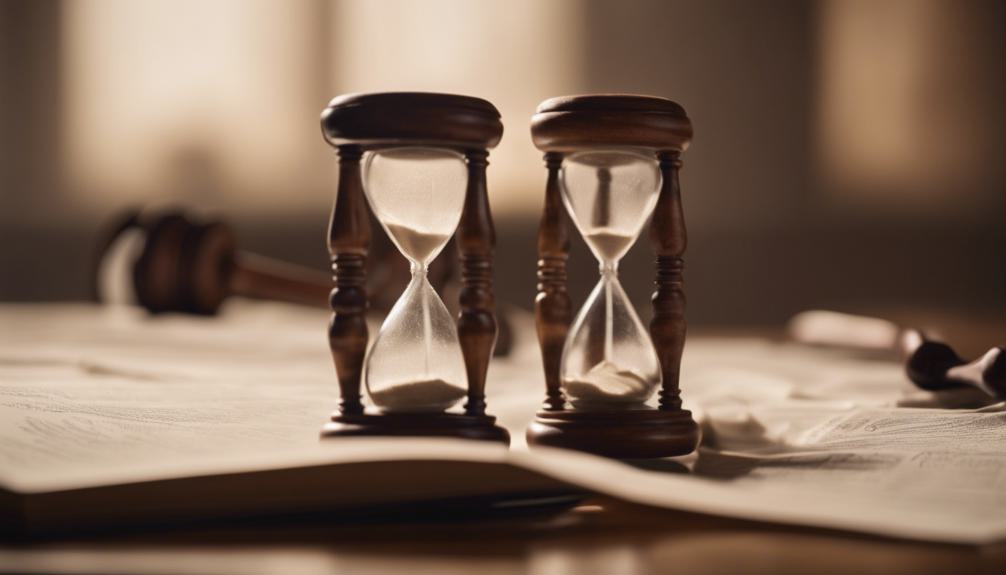
A critical aspect for individuals pursuing personal injury claims in New Jersey is the statute of limitations, which sets a two-year deadline for filing lawsuits. This period starts from the date of the accident or discovery of injury, emphasizing the urgency for potential plaintiffs to act swiftly. New Jersey courts are generally stringent about this timeframe, usually rejecting cases filed after the deadline. However, certain exceptions might extend this period, such as when the injured party is a minor or if the defendant left the state. It should be emphasized that claims against New Jersey state or local government entities may have shorter filing deadlines, necessitating an even quicker response from injured parties to preserve their rights to compensation.
Frequently Asked Questions
How Do I Determine if My Personal Injury Case Is Worth Pursuing in New Jersey?
To determine if a personal injury case is worth pursuing, consider the severity of injuries, the clarity of liability, potential damages recoverable, and the impact on your life. Legal consultation is highly recommended for assessment.
What Steps Should I Take Immediately Following an Accident to Strengthen My Personal Injury Claim in New Jersey?
Immediately following an accident, act as though building a case is like constructing a fortress—each piece of evidence strengthens your position. Seek medical attention, document the scene, gather witness information, and report the accident.
Are There Any Specific Laws in New Jersey Regarding Personal Injury Claims for Minors or Children?
In the context of personal injury claims for minors or children, it is essential to understand the specific regulations and protections afforded to them under the law, ensuring their rights and interests are adequately safeguarded.
How Does New Jersey Handle Personal Injury Claims That Involve Government Vehicles or Public Transportation?
In addressing personal injury claims involving government vehicles or public transportation, it is essential to note the unique legal framework. New Jersey imposes a shorter statute of limitations and specific procedural requirements for such cases.
Can I Still File a Personal Injury Lawsuit in New Jersey if I Was Partially at Fault for the Accident?
In personal injury cases where the plaintiff is partially at fault, New Jersey's modified comparative negligence law allows for a lawsuit, provided the plaintiff's fault is not greater than the defendant's. Compensation is adjusted accordingly.
Conclusion
To summarize, the landscape of personal injury law in New Jersey is marked by its complexity and unique legal stipulations. With over 400,000 personal injury claims filed annually across the United States and only 4% reaching trial, the significance of understanding specific state laws, such as those in New Jersey, cannot be overstated. Key principles like Joint Liability and Comparative Negligence, along with a strict two-year statute of limitations, play important roles in the pursuit of justice within this legal domain. This framework underscores the imperative for informed and timely action in the wake of personal injury.

This post has been generated by AI and was not reviewed by editors. This is Not legal advice. Please consult with an attorney.




